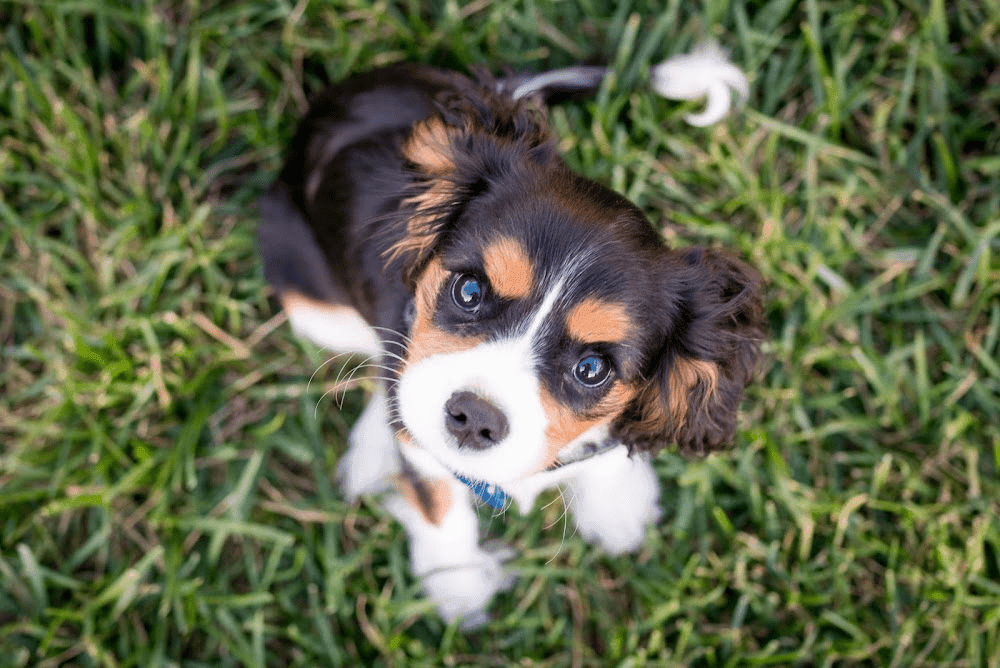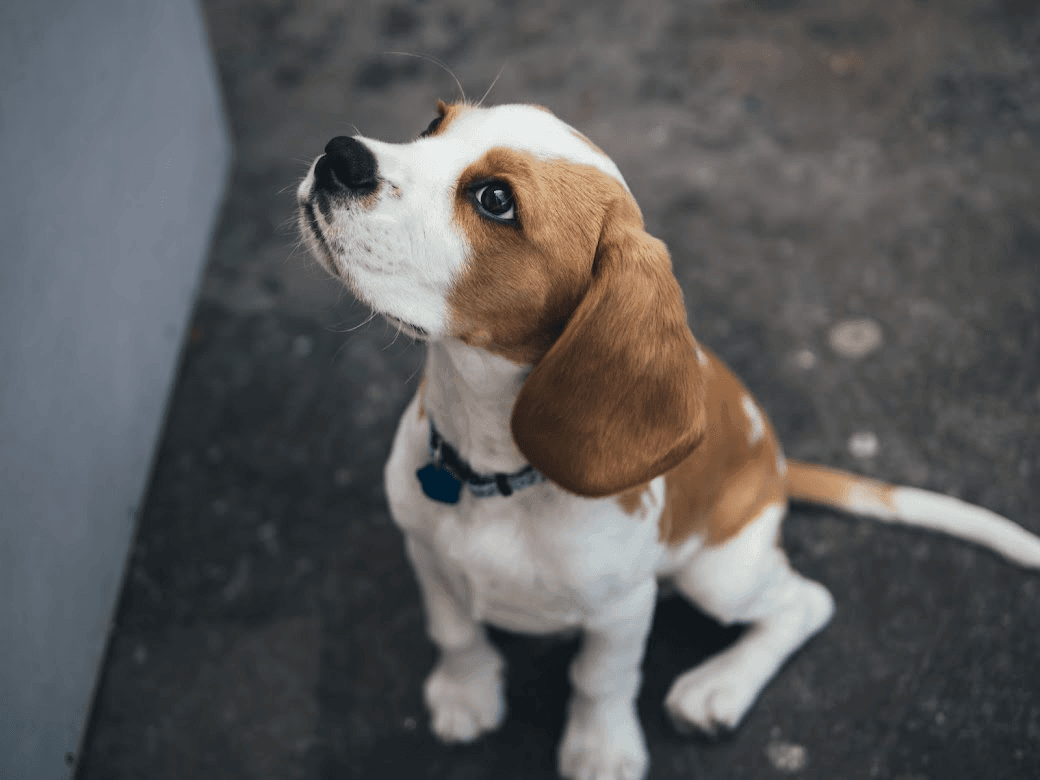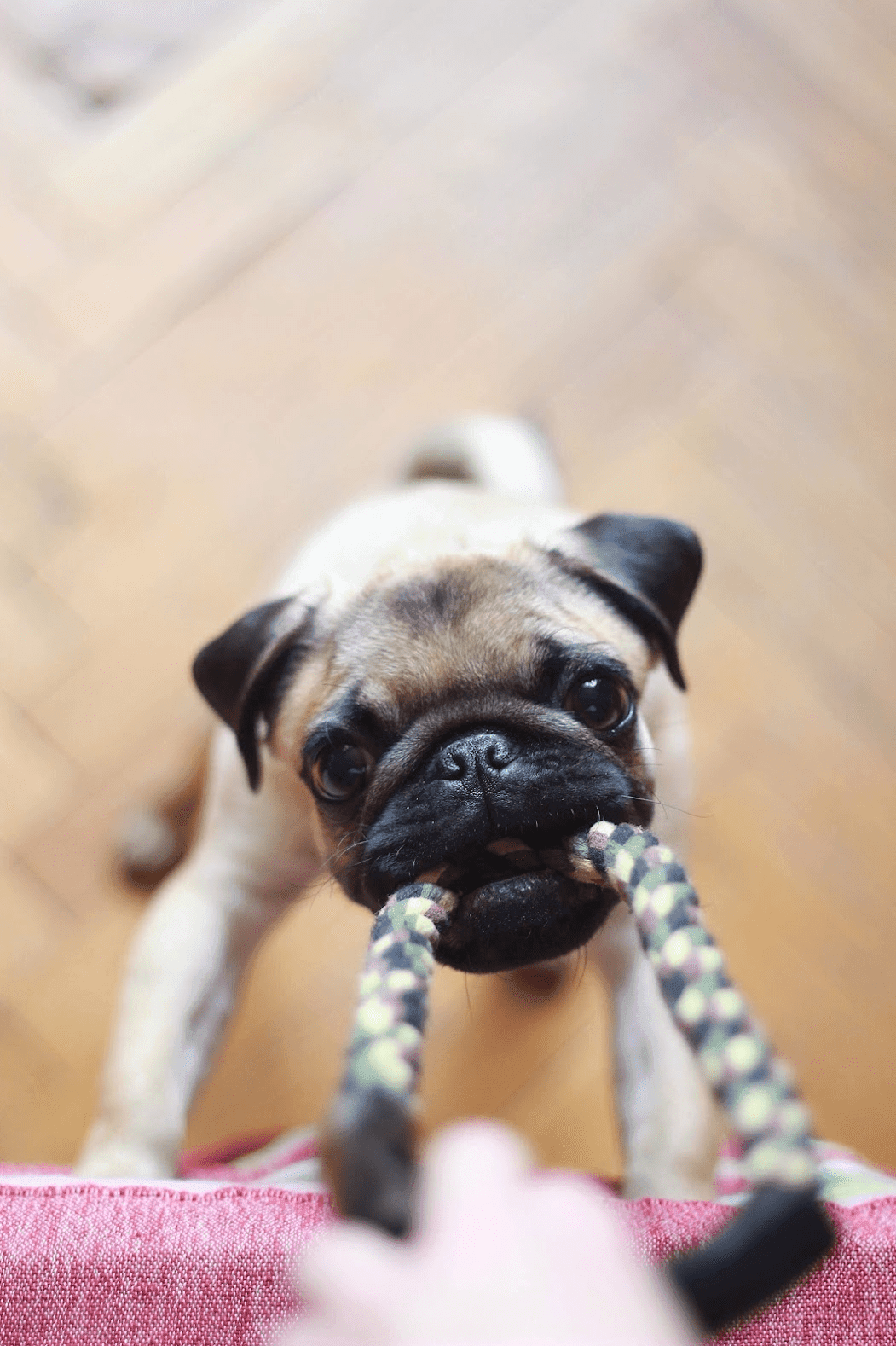PUPPY MOUTHING
While mouthing (often called ‘puppy biting’) is a normal canine behaviour, it is generally unacceptable to humans.
Mouthing is used by young dogs to explore new things and is used in interactions with other dogs and humans. It can be worse when this coincides with the time of teething, where puppies feel an even greater need to chew on things to relieve the discomfort.
Often mouthing is somewhat tolerated when pups are little and the behaviour is excused with the puppy’s age. The reality is though, that your dog will not ‘grow out of it’ and by the time they are a little bigger and stronger, the mouthing is quite painful and often perceived as a real ‘bite’.
Be Proactive
It is best to be pro-active and set up a ‘no teeth on skin’ policy right from the start. When your puppy starts to mouth you, be sure to have a soft toy within reach so that you can redirect them to something appropriate to put their teeth on instead. The more appropriate items you provide that your puppy CAN chew, the lesser chance that they will mouth your hands instead.
When puppies seem to be ‘uncontrollable’ and very mouthy, it can mean they are over tired. Settling them down with a food toy that encourages them to lick and/or chew repeatedly can help soothe them to sleep.
Why It Can Escalate
Often mouthing will occur when the puppy is being handled. This could either be due to a heightened state of arousal or the puppy not being totally comfortable with being handled yet, and the mouthing is a sign they really want you to stop.
Puppies can also be excited by excitement and activity such as people running and kids playing.
Teach kids how to redirect your puppy onto a toy and to stand still so as not to escalate your puppy’s arousal levels.
Parent’s active supervision is essential during all interactions with puppies and young children.
Set Your Puppy Up For Success
Try to limit the interactions with your puppy when they are boisterous and over excited. It is important to get calm behaviour and not rush your puppy before handling them. Try holding the end of a chew (such as a dried tendon) and allow your puppy to chew on it, whilst you are gently stroking them.
Encourage all family members to practice handling your puppy as described above. Always give your puppy the choice to move away.
Teaching to Accept Handling Without Mouthing
If your puppy is too excited when being touched, start at a time when your puppy is calm. Try long, slow, gentle strokes – just for a few seconds then stop. Gradually increase the duration (a few seconds at a time) until you can stroke all parts of the body. Have a soft toy or a food toy (such as a stuffed Kong) ready. If they start to mouth during any of this process redirect towards a toy, if that is unsuccessful, give them short break.
If your puppy is concerned about being handled, proceed as above, but start with 1 second only. Pair the touching with one hand and treat from the other hand. Ensure that your puppy can move away at any time i.e. don’t hold your puppy on your lap, as this prevents them from getting away. You want your puppy to choose to be near you!
How to Manage Your Overexcited Puppy
If your puppy falls into the category of over excited and is bouncing around and grabbing anything they can get their mouth on, and you have had several attempts to redirect to a toy or chew, the next step is to manage the choices your puppy can make.
Place your puppy with an appropriate chew in a low stimulus space i.e. crate, play pen, laundry etc. After 30 seconds give them the opportunity to try again. This is a crucial step in learning what is right. Be prepared to repeat the process to help them make good choices.
Please remember not to let your puppy become distressed i.e. by leaving them in a confined space for too long without something to do.
But it Seems to Get Worse...
Be aware, that if your puppy has practiced this behaviour for a while and you suddenly change your approach, you will much likely see a temporary increase in the behaviour (extinction burst). This is expected! Don’t give up and be persistent - you are on the right track!
Don't Overreact!
If you scream, yell, squeal, push your puppy away or say ‘No’, it might not only heighten your puppy’s arousal (which makes you seem like a human squeaky toy), but it will confuse them and doesn’t teach them what you do want them to do, which is to mouth/bite the toy instead.



